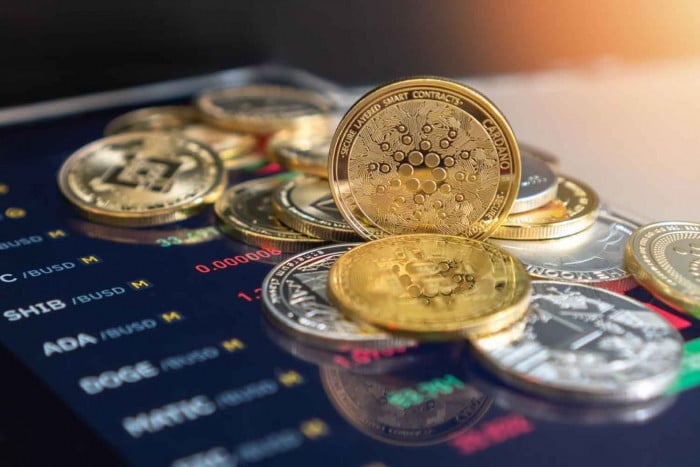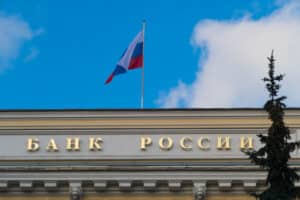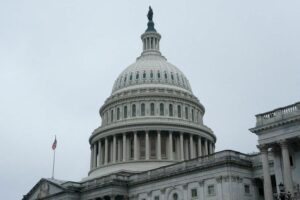Bitcoin surged to a record high of US$106,000 following Donald Trump’s US presidential election victory, reflecting a significant uptick in a cryptocurrency market long marked by volatility and recent downturns.
The debate over Bitcoin resurfaced in Thailand after remarks made by former premier Thaksin Shinawatra at a Pheu Thai Party seminar last week.
He proposed adopting Bitcoin in a restricted area first, such as utilising a sandbox pilot project in Phuket to encourage digital currency holders to spend their digital money in the country. The idea of creating a stablecoin backed by government bonds was raised at the same time.
However, this proposal has sparked concerns, with the Thailand Development Research Institute (TDRI) warning that the project could falter due to the inherent volatility of digital currencies.
Additionally, the idea of a government-backed coin risks adding confusion to the economy, as it would potentially create a new unit that would compete with the baht.
According to TDRI, the central banks of many countries are generally opposed to such steps, fearing they could undermine confidence in local currencies and complicate their usage.
RISKS TO THE BAHT
Investment strategists believe the possibility of Thailand using Bitcoin or other digital coins as a medium of exchange similar to the use of the baht is low, saying it would pose risks to the stability of the baht and confidence in the country’s financial system.
They believe Thailand must first await the results of experiments in leading economic nations before making a final decision.
The Securities and Exchange Commission (SEC) launched a regulatory sandbox in August allowing selected service providers to experiment with digital assets under relaxed regulatory scrutiny.
Thanathat Srisawast, a strategist at Tisco Economic Strategy Unit (ESU), said if a policy were implemented that allowed for Bitcoin usage, Thailand would move ahead of the US by allowing the use of Bitcoin as a legitimate medium of exchange in the way that El Salvador does.
He believes some shops in Thailand have already accepted Bitcoin in exchange for baht.
“If we want to go ahead with it seriously, it is not necessary to use a sandbox only in Phuket. It should be open for testing everywhere. Some foreign tourists have already used Bitcoin in exchange for baht,” said Mr Thanathat.
“If Bitcoin could be used for payments, the process must not be complicated. Also, we might need to wait for the supply of digital currencies in the system to increase first before we carry out a test of using digital coins instead of the baht,” he noted.
To support that policy, Thailand must create a coin that resembles a central bank digital currency (CBDC), a form of digital currency issued by a country’s central bank, he said.
It resembles a cryptocurrency, but its value is fixed by the central bank and is equivalent to the country’s fiat currency.
It also needs to have a strong security system and needs a backup plan in case the internet system crashes, he added.
“The former premier may have seen that many people are interested in Bitcoin, so he thinks this is the right time to push through such a policy,” he said.
In his view, Thailand might first need to examine the lessons learned in other countries because if the country were to make a mistake in rolling out such a policy, it would damage the credibility of the government and the Bank of Thailand. Therefore, the country must consider it carefully.
“If we try to do it in a small project like a sandbox, if there is a mistake, it can still be controlled and if it doesn’t work, we can just stop the project,” said Mr Thanatat.
Meanwhile, the reason behind the proposal for issuing a coin backed by government bonds has not yet become fully apparent.
“Maybe the government want to encourage the use of Bitcoin and other digital currencies. It is very difficult to guess what form it would take. We will have to wait for further details.”
Mr Thanatat said he believes Bitcoin investments will continue to grow next year, thanks to President-elect Trump’s policy to support it. But, according to a recent survey, some Bitcoins have been mislaid, or cannot be recovered.
Several early adopters of Bitcoin say they do not collect them seriously and it is estimated that around 5 million Bitcoins have been “lost”.
It has been estimated that there are over 10 million Bitcoins currently in circulation. New mining each year accounts for around 100,000 coins each year. If the US seriously promotes Bitcoin, other countries may follow the trend adopted by the world’s major economic power, he said.
Asadej Kongsiri, president of the Stock Exchange of Thailand (SET), said the SET so far has no policy to support cryptocurrency trading. However, the bourse is studying the possibility of developing Thailand into a digital token trading centre.
NO CLEAR BENEFITS
Phuket has been put forward as a candidate for the pilot project, which would enable cryptocurrency holders to spend their digital coins for transactions carried out within the province.
Thanet Tantipiriyakit, president of the Phuket Tourist Association, said the benefits of adding cryptocurrency as an alternative to fiat currencies such as the baht are still not clear enough to gain strong support from the business sector.
In terms of convenience for both tourists and operators, he said transactions from foreign tourists via the existing financial system run smoothly without problems. There is no pain point that requires cryptocurrency to help fix it, he noted.
Weighing the pros and cons, he said the business sector is more concerned about the grey area involving digital currencies as there are still many cases of criminals using this medium of exchange to commit fraud.
There are also concerns about practices if Phuket were chosen as the sole pilot project destination, as there is no back up in place to help conduct such transactions, such as a distribution system from a notable global tech company, which might not be ready at this stage to accept digital currencies, said Mr Thanet.
“The most critical concern is whether cryptocurrency might exacerbate unsolved problems in the industry. We now still have many foreign online travel agents that don’t register in the country, resulting in a large sum of revenue flowing out from Thailand. We would like to be assured that the arrival of cryptocurrency would not make this situation worse,” he said.
In terms of tourist demand, Mr Thanet said tourism operators in the province have not received inquiries from foreign cryptocurrency holders who are tourists suggesting they would like to spend their digital assets on products and services during their time in the country.
When the value of a digital asset surges, the holders of such assets would likely be keen on keeping them or using them for investment purposes rather than spending them on lesiure or travel pursuits, he said.
Mr Thanet said if cryptocurrencies were adopted in the province, the business sector would prefer to have governmental agencies or banks as an intermediary during the early stage in order to verify and appoint a licensed exchange for tourists who would like to spend their digital coins, rather than allowing them to pay directly via a digital currency.
He also agreed with the TDRI that the stability of the baht is the most important factor for businesses at the moment. If a new stablecoin issued by the government created an impact on a major currency, it would impact the whole economy eventually, he said.
NO BACKUP
While not against cryptocurrency, notably Bitcoin, Montri Mahaplerkpong, chairman of the International Chamber of Commerce, opposes the idea of using Bitcoin as a new alternative medium of exchange to facilitate business transactions because digital currencies have nothing to back their usage.
Currencies were once tied to a certain quantity of gold under the gold standard. In the capital market, stocks are backed by the ownership of the listed companies.
“But when it comes to Bitcoin, I see nothing in terms of back up,” said Mr Montri.
If the government further promotes Bitcoin, which may lead to wider usage through the purchase of goods and services, users, both businesses and households, will struggle to avoid some level of financial risk.
“Even the trading of stocks on the Stock Exchange of Thailand encounters problems sometimes. Who knows what might happen with Bitcoin,” he said.
Bitcoin traders are currently the only participants taking a risk. They cannot lodge a complaint when they face a problem because digital currencies are not overseen or regulated by the government, he said.
If the Bitcoin trading system collapses, users will be solely responsible for any unpleasant consequences, said Mr Montri.
In Mr Montri’s opinion, rather than being used like money to conduct everyday transactions, the storing and spending of cryptocurrency by users seems to just be a way of racking up profits from speculation on the value of the digital assets.
“In fact, I am open-minded about cryptocurrencies, but I want to see their usage limited to individuals. I do not want to see the government promote crypto by granting it legal status,” said Mr Montri.
“Who will take responsibility if that were to lead to economic damage?”



